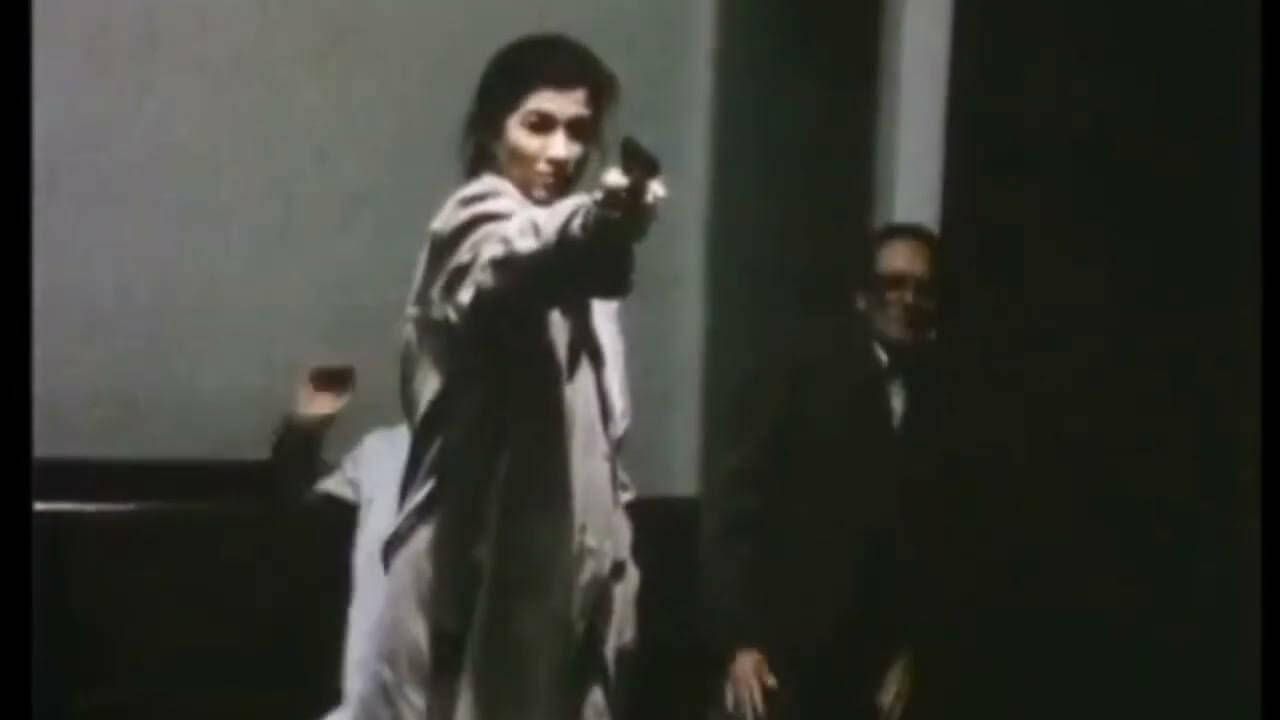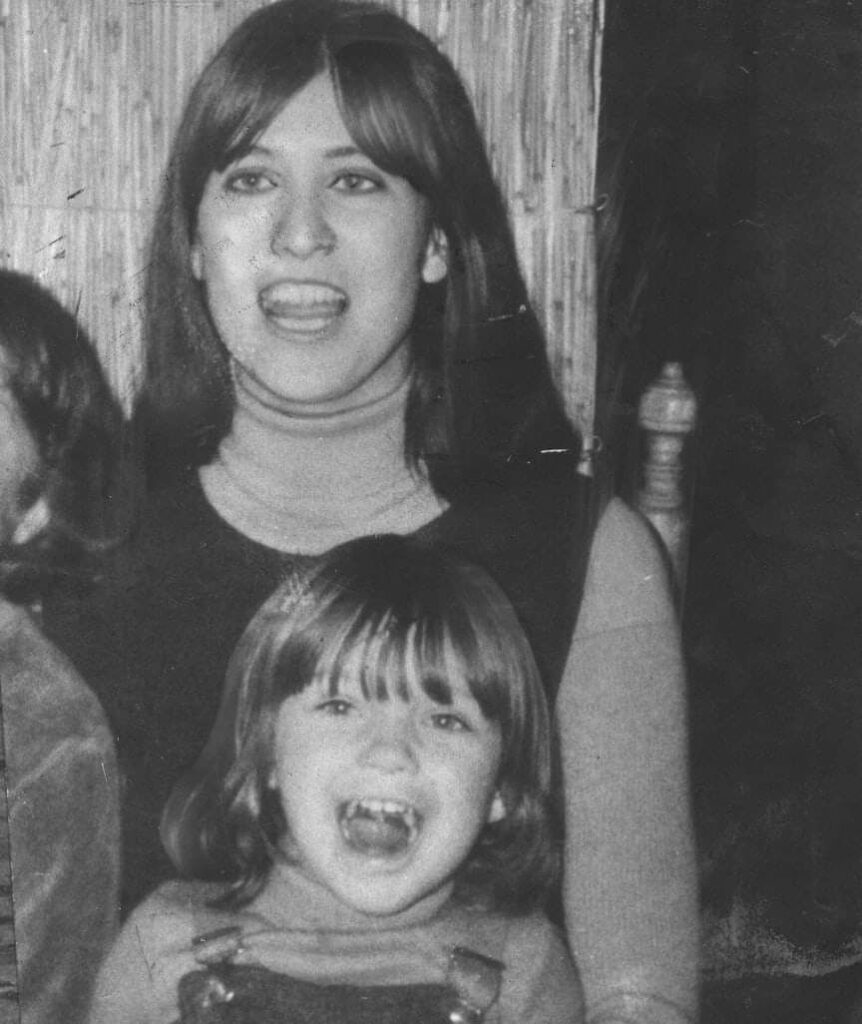Marianne Bachmeier: The Mother Who Took Justice Into Her Own Hands
Marianne Bachmeier was a name that echoed through the halls of justice in Germany during the early 1980s. Her story is one of profound grief, unyielding love, and a quest for justice that culminated in a shocking act of defiance. The tragic events surrounding her life not only captured the attention of the media but also sparked a nationwide debate on vigilante justice and the legal system's response to heinous crimes. In this article, we will delve deep into the life of Marianne Bachmeier, her motivations, and the implications of her actions.
Born in 1950, Marianne faced numerous challenges throughout her life, but nothing could prepare her for the tragedy that struck her family. The brutal murder of her daughter Anna in 1980 by a repeat offender left Marianne shattered. Her subsequent actions during the trial of her daughter's killer would forever change her life and the lives of many others. This exploration of Marianne’s life is not just about a crime; it’s about the depths of a mother’s love and the lengths she would go to seek justice.
As we navigate through the complexities of Marianne Bachmeier's story, we will touch upon her early life, the events leading to her daughter's tragic death, the courtroom drama, and the aftermath of her actions. Each section aims to provide a comprehensive understanding of why Marianne Bachmeier became a symbol of both maternal love and the quest for justice.
- Dee Dee Blanchard Crime Scene Photos An Indepth Analysis
- Stana Katic The Journey Of A Talented Actress
Table of Contents
- Early Life of Marianne Bachmeier
- Tragedy Strikes: The Murder of Anna
- The Trial of Klaus Grabowski
- The Shooting Incident
- Public Reaction and Media Coverage
- Legal Implications of Vigilante Justice
- Aftermath: Life After the Trial
- Legacy of Marianne Bachmeier
Early Life of Marianne Bachmeier
Marianne Bachmeier was born on June 24, 1950, in the city of Lübeck, Germany. Her early life was marked by instability; she faced the challenges of a broken home and the trials of single motherhood. Despite these hardships, Marianne exhibited a strong spirit and resilience. Her determination to provide a better life for her children was evident from a young age.
In her youth, Marianne had dreams of becoming a teacher, but her life took a different trajectory. She had two children from different relationships before giving birth to her youngest daughter, Anna, in 1975. Anna was the light of Marianne's life, and their bond was incredibly strong. Marianne dedicated herself to being a loving mother, instilling in Anna the values of compassion and independence.
Marianne's life was a testament to her dedication as a mother, but the shadows of tragedy loomed large, and the events that would unfold would test her resolve in unimaginable ways.
- David Alan Grier A Multifaceted Talent In Comedy And Acting
- Understanding Blake Livelys Height And Weight A Comprehensive Guide
Tragedy Strikes: The Murder of Anna
On May 5, 1980, the unthinkable happened. Anna, just seven years old, was kidnapped by Klaus Grabowski, a 35-year-old man with a history of sexual offenses. Grabowski lured Anna into his home, where he brutally assaulted and ultimately murdered her. The horror of Anna's death was compounded by the fact that Grabowski was a repeat offender who had previously been convicted of similar crimes.
Marianne was devastated by the loss of her daughter. The news of Anna's murder shattered her world, leaving her in a state of disbelief and grief. As the investigation unfolded, Marianne learned about Grabowski's criminal history and the numerous opportunities that the legal system had missed to protect children like Anna.
Anna's funeral became a pivotal moment for Marianne, as she grappled with her overwhelming sorrow and the anger directed at the justice system that had failed to keep her daughter safe. This sense of injustice would fuel her actions in the months to come.
The Trial of Klaus Grabowski
In March 1981, Klaus Grabowski's trial began, and it quickly attracted national attention. The courtroom was filled with reporters, and the public was eager to hear the details surrounding Anna's tragic death. Marianne attended the trial every day, determined to confront the man who had stolen her daughter's life.
During the proceedings, Grabowski attempted to downplay his actions, claiming that Anna had provoked him. His defense strategy was infuriating for Marianne and many others who had followed the case. The trial revealed the systematic failures of the justice system, including the lack of adequate measures to monitor sex offenders.
As the trial progressed, Marianne found herself consumed by a mix of emotions—anger, heartbreak, and a desire for justice that was growing stronger by the day.
The Shooting Incident
On March 6, 1981, the trial took a shocking turn. During a break in the proceedings, Marianne smuggled a .22 caliber pistol into the courtroom. As Klaus Grabowski sat in the defendant's chair, Marianne stood up, aimed the gun at him, and fired seven shots—hitting him six times. Grabowski died instantly, and the courtroom erupted in chaos.
This act of violence sent shockwaves throughout Germany. Many viewed Marianne as a grieving mother who had taken justice into her own hands, while others condemned her actions as a dangerous precedent for vigilante justice. The incident raised significant questions about the legal system's ability to protect victims and their families.
Public Reaction and Media Coverage
The shooting of Klaus Grabowski captured the attention of the media and the public alike. Headlines dominated newspapers, and various talk shows debated the moral implications of Marianne's actions. Some hailed her as a hero, while others labeled her a criminal.
A significant portion of the public empathized with Marianne, understanding the depth of her pain and her desperate need for justice. Supporters organized rallies, calling for leniency in her sentencing. The media portrayed her as a symbol of maternal love and the lengths a mother would go to protect her child.
However, the legal community was divided. Legal experts debated the implications of her actions on the justice system, questioning whether such acts of violence could ever be justified. The case became a focal point for discussions on the need for reforms in the handling of sexual offenders and the rights of victims and their families.
Legal Implications of Vigilante Justice
The aftermath of the shooting raised critical questions about the concept of vigilante justice. Marianne Bachmeier's case highlighted the emotional turmoil faced by victims' families and the perceived shortcomings of the legal system. As a society, the implications of her actions demanded a closer examination of how justice is served.
Her trial began in 1983, and the courtroom became a battleground for arguments about justice, morality, and the law. Marianne's defense team argued that she acted out of temporary insanity, driven by the unbearable grief of losing her daughter. The prosecution, on the other hand, sought to hold her accountable for the violent act.
Ultimately, Marianne was convicted of manslaughter and sentenced to six years in prison, but she served only three years before being released. This outcome sparked further debate about the adequacy of sentencing for crimes of passion and the need for a more compassionate approach to victims' families.
Aftermath: Life After the Trial
Following her release from prison, Marianne Bachmeier struggled to reintegrate into society. The media frenzy surrounding her case had left her in the spotlight, and she found it challenging to escape the public's gaze. Despite the outpouring of support from many, she also faced criticism and judgment from others.
In the years that followed, Marianne moved to various locations in Germany and eventually settled in Lübeck, where she tried to rebuild her life. She became an advocate for victims' rights, speaking out against the injustices faced by families affected by violent crimes. Her story resonated with many, and she became a symbol of the need for reform in the justice system.
However, the emotional scars from losing Anna and her actions in the courtroom remained with her. Marianne struggled with her mental health, grappling with the consequences of her past choices. Her journey was a testament to the enduring impact of trauma and the complexities of seeking justice in a flawed system.
Legacy of Marianne Bachmeier
Marianne Bachmeier's story continues to resonate in discussions about justice, grief, and the role of victims' families in the legal process. Her actions sparked a nationwide debate about the adequacy of the legal system in protecting the most vulnerable members of society. Many have called for reforms to improve the handling of sex offenders and to provide better support for victims and their families.
In popular culture, Marianne's story has been the subject of documentaries, books, and films, further
- Allmovieshub Your Ultimate Guide To Streaming Movies Online
- Travis Kelce Injury Update What You Need To Know

Marianne Bachmeierdeutsche Gastwirtin Cool Wallpapers Cartoon

Marianne Bachmeier'in, 7 Yaşındaki Kızını Tecavüz Edip Öldüren Kişiyi

Marianne Bachmeier The Woman Who Shot Her Daughter's Killer in Court